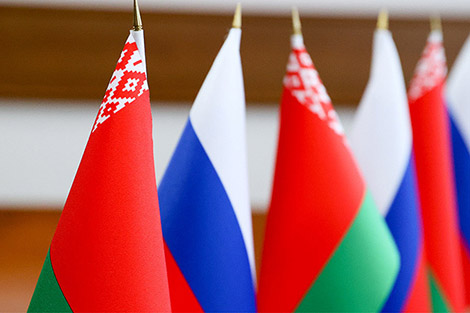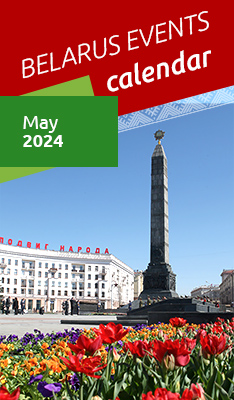Business news
Scientist speaks about Union State space programs

An archive photo
MINSK, 12 April (BelTA) - Close cooperation between Belarus and Russia in the space industry let the two countries successfully implement scientific and technical programs of the Union State, Sergei Korenyako, head of the department of joint programs of space and information technologies of the Joint Institute of Informatics Problems of the National Academy of Sciences of Belarus, told BelTA.
According to the scientist, the results of these programs are aimed at expanding the common scientific, technological and information space of the two countries, the integration of intellectual and industrial resources, including ground and orbital space vehicles. “Close cooperation between Russia and Belarus in the space industry has made it possible to successfully implement eight scientific and technical programs of the Union State. Each of them pursued its own goal, but all of them were aimed at integrating the ground-based, space-based component of the infrastructure of the two countries to address the main issue - improving the quality and speed of receiving information from space,” he said.
According to Sergei Korenyako, the first Cosmos-BR program was implemented in 1999-2002. It helped solve the main task, i.e. to restore the lost ties and to recreate cooperation of Russian and Belarusian enterprises, universities and organizations working in the space sector. “The second program Cosmos-SG was implemented in 2004-2007 and was aimed at development of technologies for space images interpretation, creation of integrated geoinformation systems of accounting and rational use of natural resources, key elements of onboard and service systems of new generation microsatellites. An improved highly informative center of space data reception and processing technology was set up as a result of this work. The foundation of the Belarusian space system for remote sensing was also laid,” the scientist added.
The third space program of the Union State Cosmos-NT was implemented in 2008-2011 to help develop hardware and software complexes for thematic processing of space information and provided for the development of the Belarusian center for receiving information from space. “The Union State's Monitoring-SG program was aimed at developing new space and ground-based tools to provide Russian and Belarusian consumers with remote sensing information. In 2013-2017 this program helped develop technologies for the use of remote sensing data, advanced small-sized onboard special and scientific equipment, materials and element base with improved characteristics, new tools and technologies for processing of space information received from promising Earth observation equipment from space,” Sergei Korenyako said.
The scientist also mentioned the Technology-SG program aimed at using, supplementing and developing the achievements in nanomaterials, nanocoatings and nanoelectronics important for the rocket and space sector. One of the most important projects for Belarus in the history of cooperation with Russia in space was the development of a joint group of satellites for remote sensing of the Earth. The launch of the Belarusian national spacecraft in 2012 marked a new era in the country's development, enabling Minsk not only to launch its own remote sensing program, but also to promote itself as a member of the club of space powers.
Now Belarus and Russia are working on three joint space exploration programs, which are designed through 2027. This year the Complex-SG program will be launched. “The program provides for the development of a number of satellites, with the Belarusian-Russian one being more advanced. It also envisages the development of two nano-satellites - Belarusian and Russian ones,” Sergei Korenyako said.







 print version
print version make home page
make home page add to bookmarks
add to bookmarks

